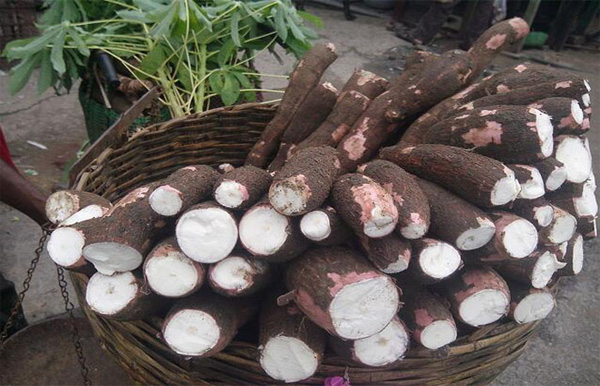Why is cassava an important food crop for Africa?
Industry News / Chat online / Technical support / 2019-06-18
Cassava is a very good crop, especially suitable for planting in Africa, because it is very drought-tolerant, high-temperature resistant, and it can grow very well without much careful cultivation, and the yield is very large, in Africa. The cassava cooking is very varied and can be eaten directly, or cooked, or processed into more popular garri and fufu.
Cassava is highly adaptable to the African tropical climate and soils, and remains very popular for producing excellent harvests even when other crops fail. It is also the most widely available source of carbohydrates and dietary energy in Africa.
Processed forms of cassava, especially gari (or garri), fufu and cassava flour are very common throughout West Africa. Garri is hugely popular in the region as it has traditionally remained cheaper than other carbohydrate sources, especially rice and maize.
 Cassava tubers
Cassava tubers
On the other side, cassava tubers more and more profitable. The price of cassava tubers and its derivatives have increased sharply in the past few years.
In addition, the raging economic growth of China has made it the largest buyer of African cassava, which it uses as a major ingredient for animal feed for livestock (cattle, pigs etc.). China is currently responsible for more than 60 percent of global cassava consumption, and is still buying more from Africa (especially Nigeria)!
Combine the growing profile and demand for cassava as a source of biofuels and it becomes very evident that the future demand and prices for cassava is headed for the skies. The estimated value of the global cassava trade is in excess of US$2 billion annually. However, Thailand, Brazil and Indonesia dominate the international trade in cassava.
Despite its favourable climate, fertile soils and cheap manpower, Africa is yet to fully exploit the huge returns from the global cassava trade. Due to the very short shelf life (2-3 days) of harvested cassava tubers, inadequate road and power infrastructure, most of the cassava produced in Africa is consumed locally, where it is still unable to address the growing consumption.
As a result, a lot of the cassava harvested every year in Africa become spoilt and never make it to the market. This wastage is estimated to be worth millions of dollars every year.
Prev:Types of garri in the market
Next:Types of cassava

 Call us
Call us Chat online
Chat online

